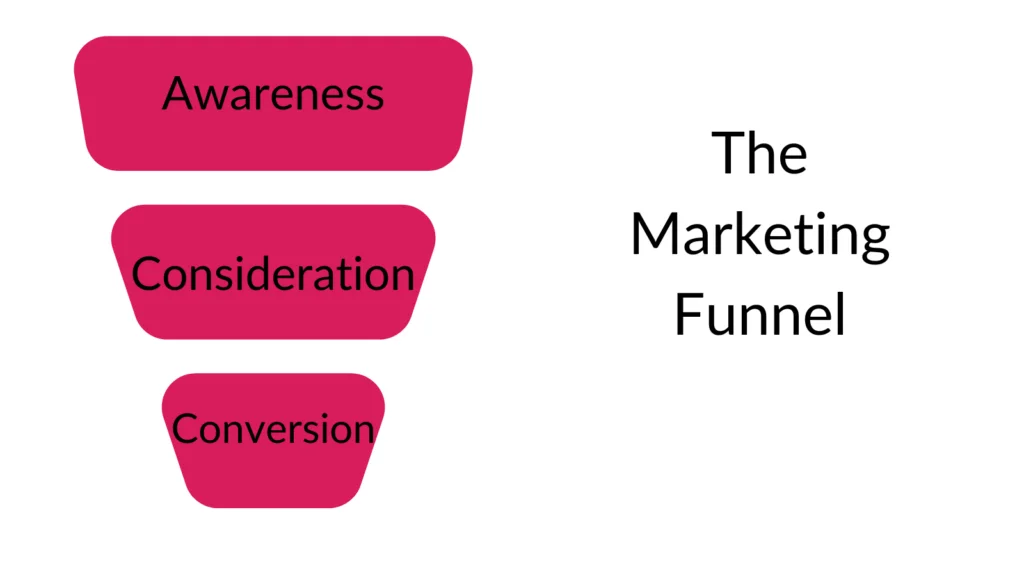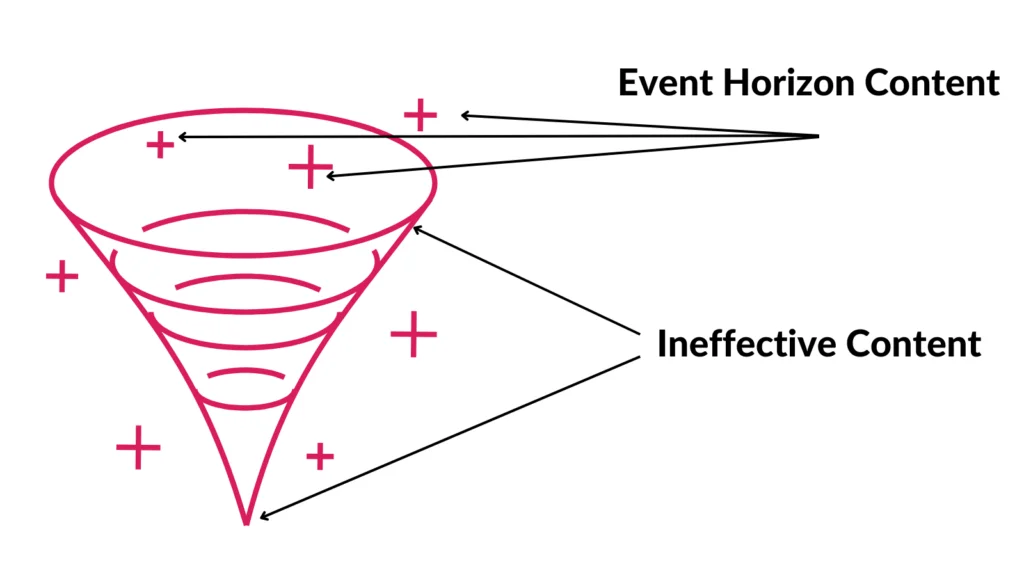The Ultimate List of the Best 10 Digital PR Agencies in the UK and US (2025)
Digital PR

In the SEO world, one thing is sought more than anything.
Traffic.
But in this article, you’ll learn why not all SEO traffic is good traffic.
And some traffic is rather pointless.
Let’s dive in.

The marketing funnel is over 100 years old and shows no sign of dying any time soon.
Here is a quick recap:
The funnel tends to have 3 stages.
In SEO terms, content tends to focus on consideration and conversion with buyer intent search terms.
If you’re in the market for buying a pair of black Nike trainers, you’ll search for ‘best black Nike trainers’.
Of course, they’ll be modifiers such as ‘for running marathons’ and so on.
But that’s the focus of SEO, to rank businesses and services for high purchase intent keywords.
However, the awareness part seems to be where SEO goes adrift.
SEOs are obsessed with traffic, so much so that it’s been the default metric of good SEO.
Why?
This is partly because the publisher model of SEO has long delivered most of the training for the SEO industry. And when you sell ad space on your websites, traffic is the core metric.
But for brands and businesses, this doesn’t hold true.
The logic behind creating content at scale is that you’ll reach your potential audience.
Let’s say you’re an HR SaaS product.
You create loads of articles about HR that rank great. While the HR person reads one of your articles, they look at your websites and your product.
That’s the whole idea behind the process. You make people aware of your business through content.
Except, it has significant drawbacks.
Firstly, the HR person reading your content will not likely be in the market to acquire new HR software.
And this is the issue with this content and traffic.
It’s mainly so top of the funnel it’s likely not a benefit.
I call this Event Horizon content.

I’m not a scientist, but the quote below sums up an Event Horizon.
The ‘event horizon’ is the boundary defining the region of space around a black hole from which nothing (not even light) can escape.
Event Horizon content sits at the very edge of the black hole of marketing uselessness.
Which means yes. There is an argument that the content and traffic are of value.
But it’s so top of the funnel that it could never be proved.
Now, I’m not saying that there isn’t an argument for creating the content for the purposes of topical authority, email list building and the like.
But equally, it can be a worthless activity too.
The question is, how do you know?
The goal of good SEO should always be to build useful websites.
That’s a lofty purpose indeed, but the idea is simple, to create a website so good that people remember you and come back of their own accord.
This should be the directive behind your SEO, not the ability to gain traffic.
For example, let’s say you have 2 topics you could target.
Topic 1: 10,000 searches a month (but not of use to your ideal prospect)
Topic 2: 50 monthly searches (but highly useful to your ideal prospect).
If you follow the event horizon style of SEO, you will target the first topic.
But smart SEO that is focused on usefulness would target topic 2.
Now, the thing is. The SEO industry is not based on usefulness; it’s based on traffic.
Trying to tell a client that you created a really useful piece of content isn’t going to sound great when compared with ‘we created content to target a 10,000 monthly search volume keyword’.
And this obsession with traffic is a massive problem in the SEO sector.
Fortunately, there is a workaround.
One of the defences of event horizon content is that it gets a business in front of people at no incremental media spend.
This is true.
But you are unlikely to reach someone in the market to buy or who will be in the market to buy soon.
So, you’re reliant on email capture and also the power of your brand assets, such as your logo. All in the hope that they’ll think of you when they do become in the market to buy.
It’s all a tad vague on effectiveness.
An alternative is to generate publicity for your brand.
Leveraging the media for exposure is a tale as old as time. Well, as old as the media. But you get the idea.
Instead of generating traffic that is not in the market to buy, you generate referral traffic, backlinks and, of course, media mentions.
Let’s do the maths.
Event horizon SEO article generates 10,000 visitors per month, every month.
100% of the traffic reading this is either not in the market or never would be.
Media placement in an article on a relevant publisher’s site reaches 100,000 people that day.
10,000 of which are in the market for what you offer but unaware you exist.
100, then click through to your site.
So, what happens when they click through to the site?
They see your amazing website packed with useful content for them, and they mentally bookmark your site.
Oh, and they look at your products and services and think, ‘Where have these been all my life?’
Of course, the above is a little romantic, but that’s how it works.
You create a great website.
You leverage the media for exposure.
But does this work?
Hell yeah.
Take a look at our case study for one of our digital PR link-building clients.
Okay, so let’s wrap this up.
When deciding on what content to create. It’s a good idea to think, ‘What is this for?’
Topical authority is a good reason.
To help build links could be another.
But be careful of creating too much event horizon content for SEO.
It’s on the edge of the marketing black hole of usefulness. And remember, when it comes to brand growth, traffic is a vanity metric.